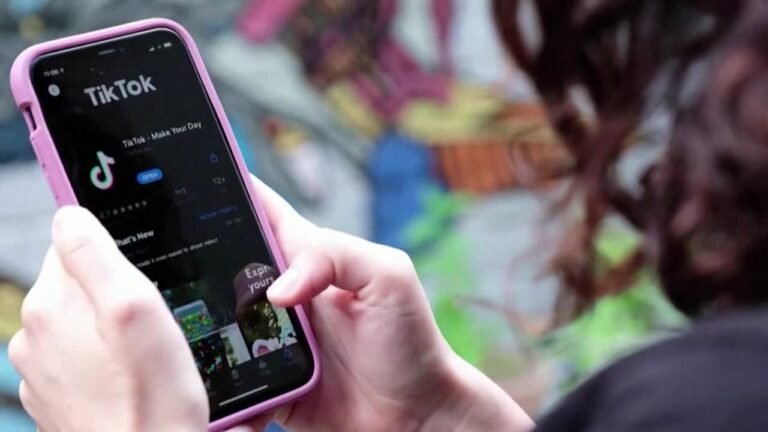Tribe sues social media giant over ‘mental health crisis’ in Minnesota’s first lawsuit
The Fond du Lac Band of Lake Superior Chippewa has filed the first lawsuit in Minnesota, alleging that the parent companies of several social media sites are responsible for an alarming rise in mental illness and suicide rates among Native American youth in recent years.
The complaint, filed over the weekend in Los Angeles Superior Court, follows similar lawsuits filed by 33 states, including Minnesota, against the parent companies of Facebook, Instagram, Snapchat, TikTok and YouTube.
Robbins Kaplan LLP, the Minneapolis-based law firm representing the Fond du Lac tribe, said it is filing the lawsuit in California courts because the defendants are based in California and the state’s courts have established procedures for handling related lawsuits from across the United States.
Last year also saw a slew of warnings and reports from senior officials, including Minnesota Attorney General Keith Ellison and U.S. Surgeon General Vivek Murthy.
Related: Attorney General Ellison asks Minnesotans to share their stories about the impact of social media
Robbins Kaplan is the first law firm to file such a lawsuit on behalf of a tribal nation. Lawyers representing the Fond du Lac Band of Lake Superior Chippewa and four other tribal nations in North Dakota and Wisconsin argue that social media is causing serious harm to Native children and youth and that tribal nations lack the resources to address it on tribal lands.
“It’s not just lawyers who are saying these two things are related,” Tara Sutton, a partner at the Robbins Kaplan law firm, told 5 EYEWITNESS NEWS in an exclusive interview on Monday.
“Scientists, along with the U.S. Surgeon General, have concluded that social media use targets children.”
She argues that the social media companies named in the latest lawsuits knew their platforms could cause harm, yet designed them to appeal to young people.
“There was definitely intent behind it,” she said, “and that’s the basis for all of these lawsuits.”
Sutton noted parallels between the recent surge in social media use and increases in youth mental illness and suicide, though suicide rates among Native American children and teens were far more staggering, according to 2021 data from the Minnesota Department of Health.
“So, in comparison [Indigenous] “Young Americans are five times more likely to be black than white,” Sutton said.
The Fond du Lac Band of Lake Superior Chippewa is the first tribe in Minnesota to sue a social media site, and Robbins Kaplan’s five-part lawsuit marks the first such lawsuit filed by a tribal government in the United States, Sutton said.
The complaint alleges that Native American children and teens are “equally trapped” at these sites, exacerbating a mental health crisis on reservations that have fewer resources to address it.
“Tribal communities got involved in the opioid litigation to ensure that settlement money goes to tribal communities because they don’t have the infrastructure or the funding to provide the types of services needed to treat mental health issues,” Sutton said.
She said if the lawsuit is successful, payments from the companies in question would be awarded to the tribe and used to bolster mental health services and education in schools and throughout the community, allowing them to better respond to crises in the future.
Only two companies responded to requests for comment Monday: Google, which owns YouTube, and Meta, the parent company of Facebook and Instagram.
“The allegations in these complaints are completely untrue,” Google spokesman Jose Castaneda wrote.
See Google’s full statement below.
“Providing a safe and healthy experience for young people has always been at the core of our work. We have collaborated with youth, mental health and parenting experts to build services and policies to provide age-appropriate experiences for young people and strong control for parents. The allegations in these complaints are simply untrue.”
Jose Castañeda, Google spokesperson
A Meta spokesperson pointed to “our efforts to provide a safe online experience for teens,” saying the company has “developed over 30 tools and features to help make this happen.”
When asked about the effectiveness of the “tools and capabilities,” Sutton said, “I think that remains to be seen.”
See the full statement from Meta below:
“We want to assure all parents that we are putting their interests first in our efforts to provide a safe online experience for teenagers. That’s why we’ve developed more than 30 tools and features, including ways for parents to set time limits for their teenagers’ use of apps, age verification technology, ways to automatically restrict teenagers under 16 from receiving direct messages from people they don’t follow, and sending notifications to encourage teenagers to take regular breaks. These are complex issues, but we continue to work with experts and listen to parents to develop effective new tools, features and policies that meet the needs of teenagers and their families.”
Meta spokesperson


